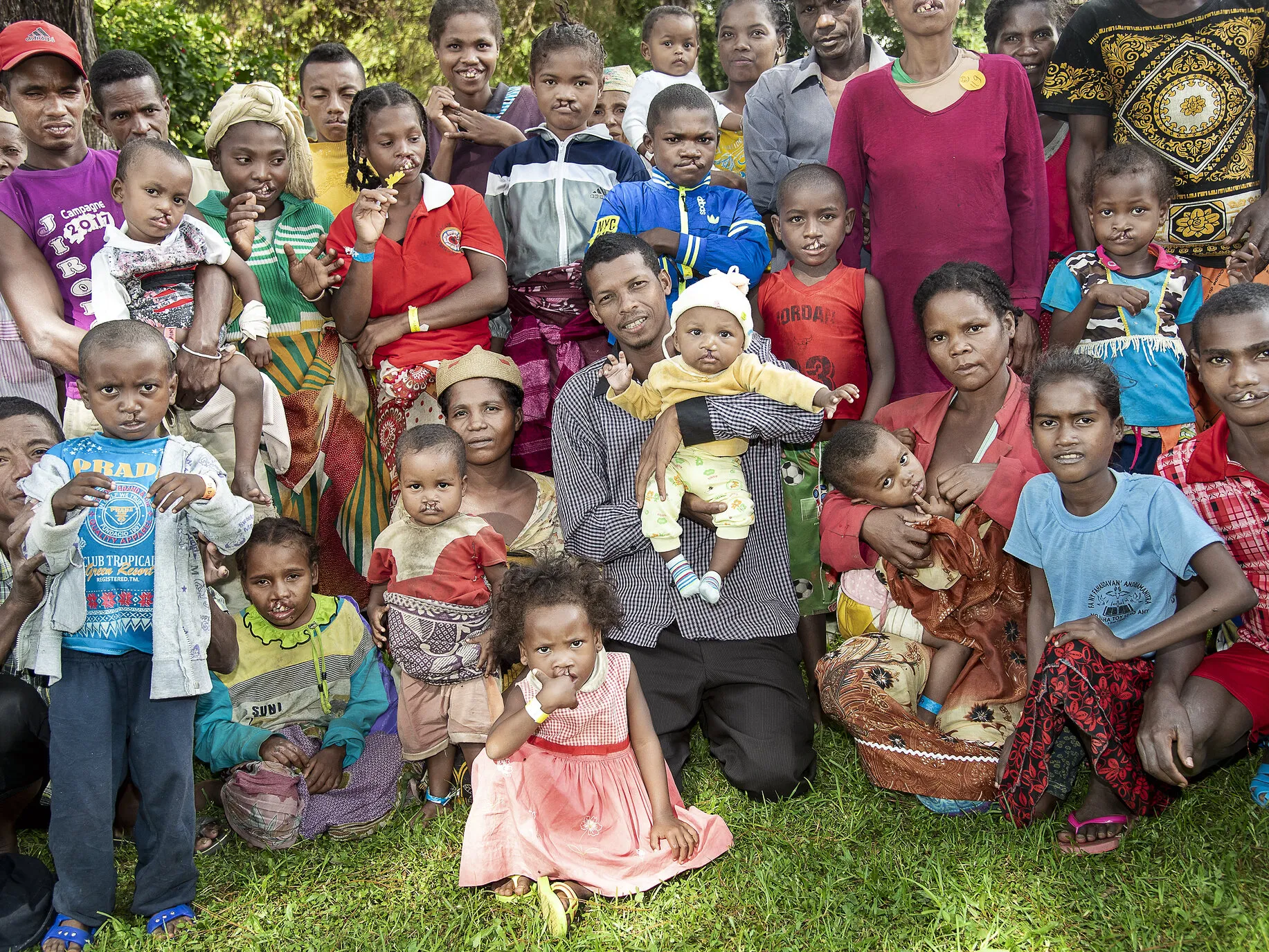Madagascar
In Madagascar, one child in every 2,000 is born with a cleft condition. But there is only one specialist surgical worker per 100,000 people.
Operation Smile Madagascar: By the Numbers
In Madagascar, children affected by cleft conditions receive access to safe surgery and multidisciplinary support.
2007
Year Services Began in Madagascar
4,300+
Surgery Patients
36
Surgical Programs

Expanding Access to Care
To ensure that every child has access to care close to home, we equip the providers within our patients’ communities with skills and resources to deliver high quality care. We build the needed capacity by harnessing the talent and resources that exist within the country, usually in the bigger cities, the hubs, to train providers in under-resourced areas, the spokes, where most patients lack access to care.
Madagascar’s hub is based in the largest hospital in the country, CHU-JRA (Centre Hospitalier Universitaire Joseph Ravoahangy Andrianavalona). CHU-JRA, located in Madagascar’s capital of Antananarivo, serves as the country’s top referral hospital.
Operation Smile provides care at our hospital partner CHRR Vakinankaratra (Centre Hospitalier De Reference Régionale Vakinankaratra). Located in Antsirabe, CHRR serves a direct catchment area of over 200,000 people and is a referral hospital for an additional two million people in the region.
Operation Smile also provides care at hospital partners CHUAT in Tamatave and CHU-PZAGA in Mahajanga.
Five-Year Vision
In the next five years, Operation Smile will train local health workers to increase access to quality and safe care closer to the patient’s home. We will build four cleft-competent surgical teams, with two teams in Antananarivo, one team in Tamatave and one team in Antsirabe. This will significantly reduce the country’s reliance on international volunteers.
Empowering medical providers with knowledge and skills will allow us to treat more patients. Operation Smile will provide surgery for around 3,200 patients and deliver comprehensive cleft care consultations for approximately 4,880 patients in the next five years.
Over the next five years, Operation Smile will advocate for creating and implementing a national cleft care protocol in Madagascar to promote cleft care as a strategic priority in public health. Operation Smile will address cultural barriers to seeking care and increase knowledge about cleft conditions by conducting awareness campaigns, organizing patient advocacy programs and promoting the national registry of cleft conditions.
Operation Smile will partner with local and international universities to conduct cleft-related research and engage in the collection of data to improve the quality of care.
Our Partners
We believe that anything is possible through the power of partnerships.
Operation Smile’s established relationship with the Ministry of Health in Madagascar has been vital to the long-term success of comprehensive cleft care projects. We also rely on our partnership with a local pool of experts, including leaders of medical professional societies with past and current leadership positions at hospitals, medical schools and the Ministry of Health who lend their expertise and networks.
Operation Smile partners with leading academic intuitions to develop and promote healthcare initiatives. Together with Johns Hopkins University, Operation Smile will implement Helping Babies Breathe trainings, as well as support community-based initiatives and improve patient referral systems. The University of Antananarivo is currently engaged through the pool of experts and is one of Operation Smile’s potential academic partners.
Operation Smile works with a variety of international NGOs, including the World Children’s Initiative, a nonprofit that improves and rebuilds health care and educational infrastructure for children, and Medaid International, which supports our efforts to procure equipment for CHRR.














